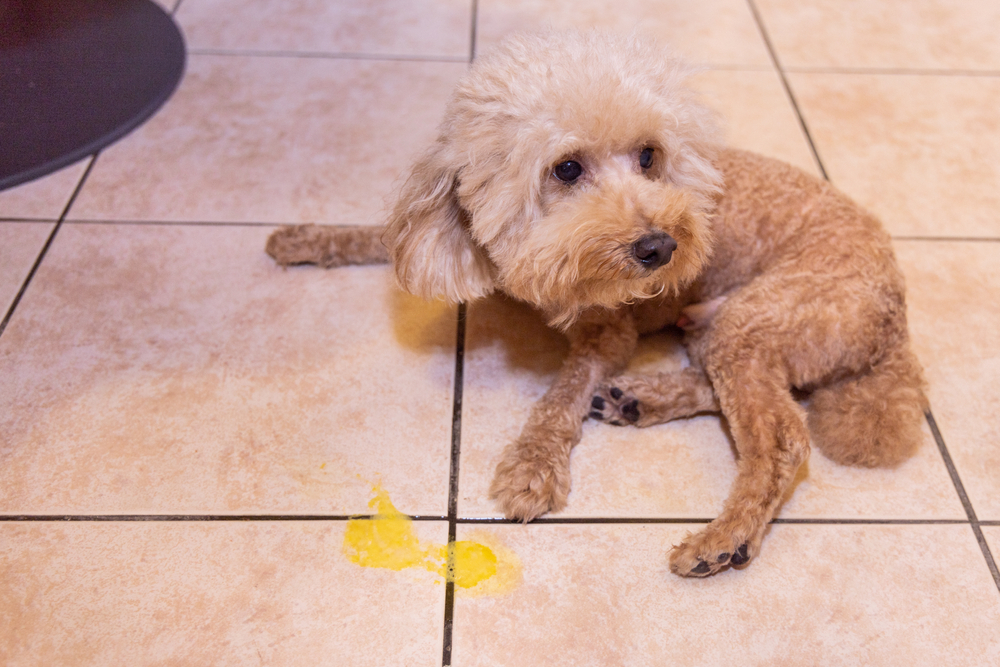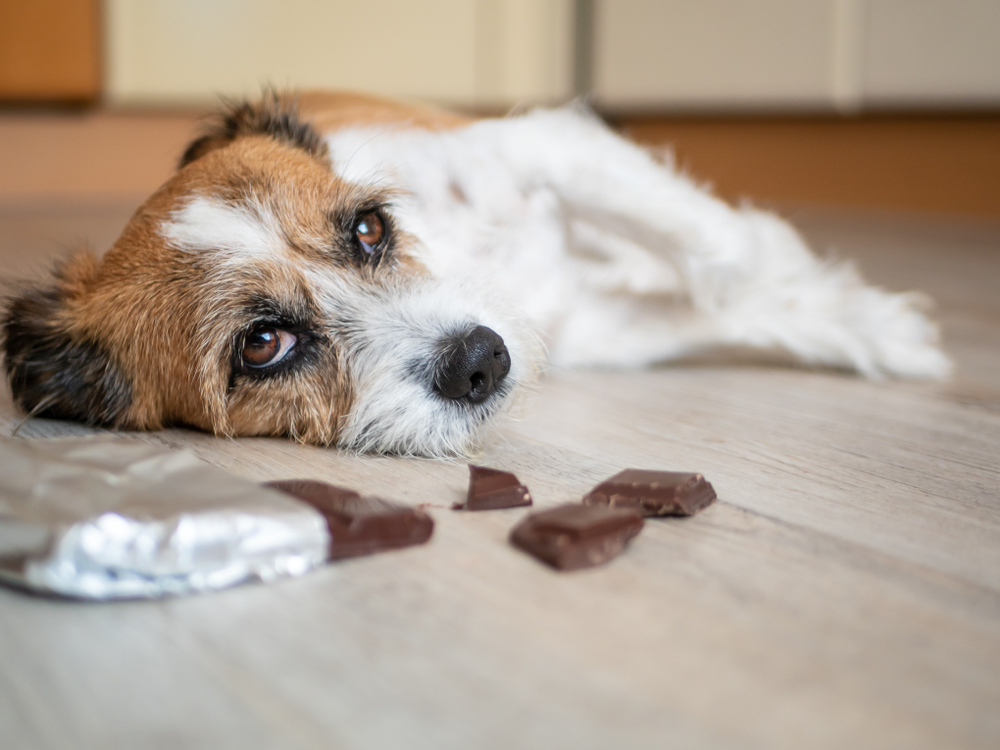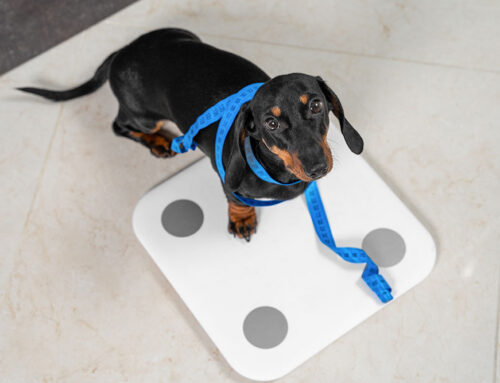Poison-Proofing Your Home: A Vet’s Guide to Keeping Pets Safe
Pets are naturally curious. Whether it’s sniffing your grocery bags, batting at a plant, or licking a suspicious puddle on the floor, their everyday antics can lead them straight into trouble. At Driftwood Animal Hospital in Daytona Beach, Florida, we’ve seen how quickly a quick bite or curious paw can become a medical emergency.
If you’ve ever caught your pet chewing on a mystery item and wondered, “Is this dangerous?”, you’re not alone. Pet poisoning is more common than most people realize. The good news? Most cases are completely preventable. This guide breaks down the biggest household hazards and gives you the tools to keep your pet safe- without turning your home upside down.
What Counts as a Pet Poison?
In veterinary terms, a “poison” is any substance that causes harm when ingested, inhaled, or absorbed. And unfortunately, pets aren’t great at telling the difference between what’s tasty and what’s toxic.
Because dogs and cats metabolize substances differently than humans, even small amounts of certain foods, medications, or cleaning agents can have serious effects. It’s not always the “obvious” toxins that cause trouble.
Common Household Poisons You May Not Expect
Let’s take a look at some of the everyday dangers hiding in plain sight:
- Foods: Chocolate, xylitol, onions, garlic, grapes, raisins
- Medications: Human prescriptions, over-the-counter pain relievers, even pet meds in incorrect doses
- Cleaning Products: Bleach, disinfectants, laundry pods
- Rodenticides and insecticides: Even “pet-friendly” labels require caution
- Plants: Lilies, sago palms, azaleas, philodendrons
- Illicit substances: Marijuana (edibles, oils), nicotine vapes, and other recreational drugs
Learn more about potentially dangerous household items and what to keep out of reach. You can also check the ASPCA’s full toxic and non-toxic plant list to assess your indoor greenery.
The Importance of Acting Fast
Toxins can affect your pet’s health in a matter of minutes- or hours, depending on the substance. Even if they seem fine at first, don’t wait. Some poisons don’t show symptoms right away, and delayed treatment can lead to lasting damage or even be fatal.
If you suspect poisoning, call your vet immediately or reach out to ASPCA Poison Control. The AVMA also offers helpful emergency care guidance to help you prepare before trouble strikes.
Foods That Are Off-Limits (Even in Small Amounts)
Chocolate
Chocolate contains theobromine and caffeine, both highly toxic to dogs and cats. The darker the chocolate, the more dangerous it is. Symptoms range from vomiting and hyperactivity to tremors and seizures. Read more about chocolate toxicity.
Xylitol
This sugar substitute- often found in gum, baked goods, and even some peanut butters- is incredibly dangerous to dogs. It can cause a rapid insulin release, leading to hypoglycemia and liver failure. Here’s the FDA’s warning about xylitol.
Grapes & Raisins
Even tiny amounts can lead to kidney failure in dogs. Symptoms may be delayed but can become life-threatening fast. It’s best to avoid them altogether.
Onions & Garlic
In raw, cooked, powdered, or dehydrated forms, these common ingredients can damage red blood cells, leading to anemia. Cats are particularly sensitive, but dogs are also at risk.
Other Common Hazards Around the House
Medications
Painkillers like ibuprofen, acetaminophen, and cold meds can be extremely harmful. Even veterinary medications can be dangerous when given incorrectly or in the wrong dose. Store all medications securely and don’t leave pills on nightstands or countertops.
Cleaning Products
Harsh chemicals like bleach, ammonia, and certain disinfectants can cause chemical burns or respiratory problems- especially when pets walk across freshly cleaned floors and then groom their paws.
Rodenticides & Insecticides
These are made to kill. Even a small amount can cause internal bleeding, seizures, or death in pets. This ASPCA article breaks down what to watch for and how to protect your pet.
Plants
That innocent-looking lily on the table? Fatal to cats. Keep toxic plants well out of reach- or better yet, out of the house. The ASPCA’s plant guide is a must-have resource for pet households.
Recreational Drugs
Edibles, vape cartridges, and marijuana are increasingly common in households- and highly toxic to pets. Cats and dogs may experience disorientation, tremors, vomiting, and in severe cases, coma. This article from the ASPCA explains more about why marijuana isn’t pet-safe.
For more information on drug toxicity, the Merck Veterinary Manual outlines toxicities from illicit and abused drugs.
What Poisoning Looks Like: Signs to Watch For
Symptoms vary based on the toxin, species, and exposure level, but common warning signs include:
- Vomiting or diarrhea
- Drooling or foaming at the mouth
- Tremors or seizures
- Stumbling or disorientation
- Rapid breathing or difficulty breathing
- Pale gums or collapse
Need a quick refresher? AAHA’s “Help! Is This a Pet Emergency?” guide is a great resource.
What To Do If You Suspect Poisoning
Stay Calm, Act Fast
- Remove your pet from the source and prevent further access.
- Gather information: What did they eat? How much? When? Take a photo or bring the label if possible.
- Call your veterinarian or Poison Control. Don’t try to treat it at home unless instructed to.
- Head to the clinic if advised. Bring any packaging or samples with you.
Veterinary Response
Depending on the toxin and timing, your veterinarian may:
- Induce vomiting (if it’s safe to do so)
- Administer activated charcoal
- Provide IV fluids and medications
- Monitor organ function through blood tests
- Use antidotes when available

Prevention Is Easier Than Treatment
It only takes a moment for a pet to ingest something harmful- but a few steps can help prevent most poisonings.
- Lock up all medications and cleaning supplies
- Keep trash cans secured and covered
- Choose non-toxic plants or pet-safe alternatives
- Store human food safely out of reach
- Double-check treat ingredients (especially for xylitol)
Looking for more tips? AAHA’s pet-proofing checklist is a great way to double-check your home.
We’re Here to Help
Poisonings are scary, but you don’t have to face them alone. At Driftwood Animal Hospital, we’re here to provide urgent support when accidents happen- and help you prevent them in the first place.
Whether you need emergency care or just want to talk about how to make your home safer, we’re ready. Contact us or meet our team to learn more.
Your pet’s safety starts with knowledge- and a vet team you can trust.








Leave A Comment